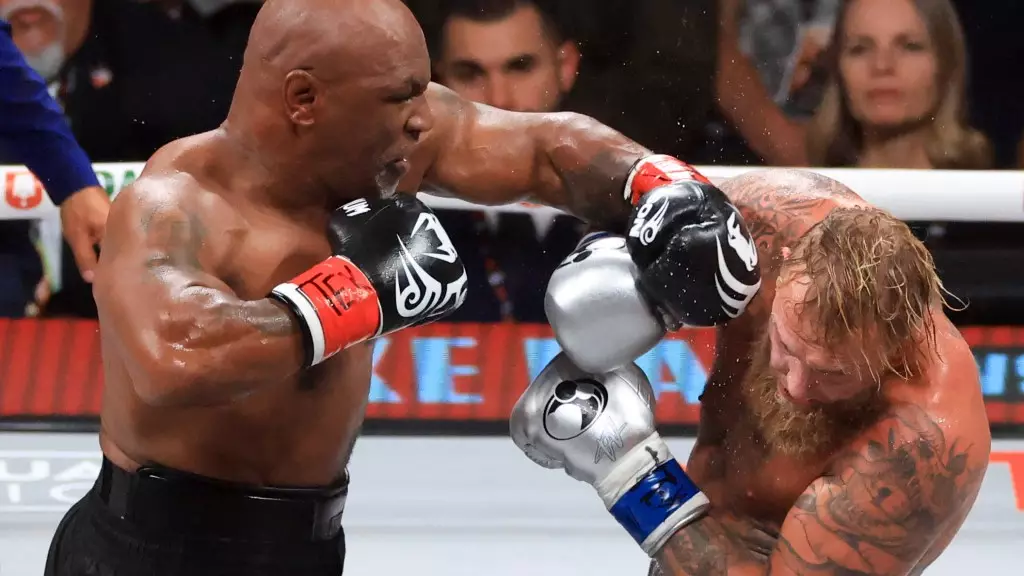In recent weeks, the boxing world was captivated by the much-anticipated showdown between Mike Tyson and Jake Paul. With Tyson at the age of 58, many commentators, including Joe Rogan, expressed concern for the boxing icon’s well-being. In a sport that demands both physical prowess and mental sharpness, the significant age difference between the two fighters posed legitimate questions about Tyson’s ability to compete safely against a younger athlete like Paul.
Despite this apprehension, the fight ended without any visible injuries to Tyson, who ultimately lost by unanimous decision. This scenario offers a layered observation on the evolving narrative of combat sports, particularly how veterans can still engage in the ring against opponents from a completely different era of boxing. Rogan’s initial worry reflects a broader concern many have regarding the safety and health of older fighters in a sport that can be perilously unforgiving.
After the bout, Jake Paul claimed he intentionally did not go all out against Tyson to ensure the fight was competitive without putting the legendary boxer at risk. Rogan took to his podcast, “The Joe Rogan Experience,” expressing relief that Tyson came out physically unscathed. He articulated a sentiment that resonates with many fans: the hope for a “Cinderella story,” where Tyson, despite his age, would emerge victorious. This desire highlights the deep emotional connections fans have with their sporting icons, especially those who have paved the way in their sports.
Interestingly, Rogan also planted praise on Paul, acknowledging the influencer-turned-boxer’s role in revitalizing interest in boxing. His recognition of Paul’s contributions to the sport illustrates a nuanced appreciation; rather than viewing the event as solely a contest, Rogan considers the broader implications of popularity, revenue, and attention that an entertainer like Paul brings. By marrying entertainment with combat sports, Paul has shifted the focus, attracting a new audience that stretches beyond traditional boxing fans.
Rogan’s analysis underscores a significant trend in professional boxing and combat sports—celebrity matches that blur the lines between sports and entertainment. The rise of figures like Jake Paul has brought mainstream attention to boxing, yet it also raises debates about the authenticity and safety of such bouts, particularly when involving older athletes. It invites critical dialogue about the integrity of the sport and its evolution in the age of social media.
Moreover, Tyson’s involvement in fights at this stage of his career poses ethical questions regarding fighter management and the responsibilities of promoters. While there is a compelling narrative of nostalgia surrounding legendary figures, it is vital to weigh the risks they undertake in their pursuit of glory or personal satisfaction.
Ultimately, the exchange between Mike Tyson and Jake Paul reflects more than just a single fight; it demonstrates the intersection of legacy, age, and the burgeoning influence of new media within athletics. As Rogan aptly summarized, the essence of sport lies in its capacity to evoke emotion and inspire, a dynamic that will continue to evolve as newcomers like Paul reshape the landscape.

